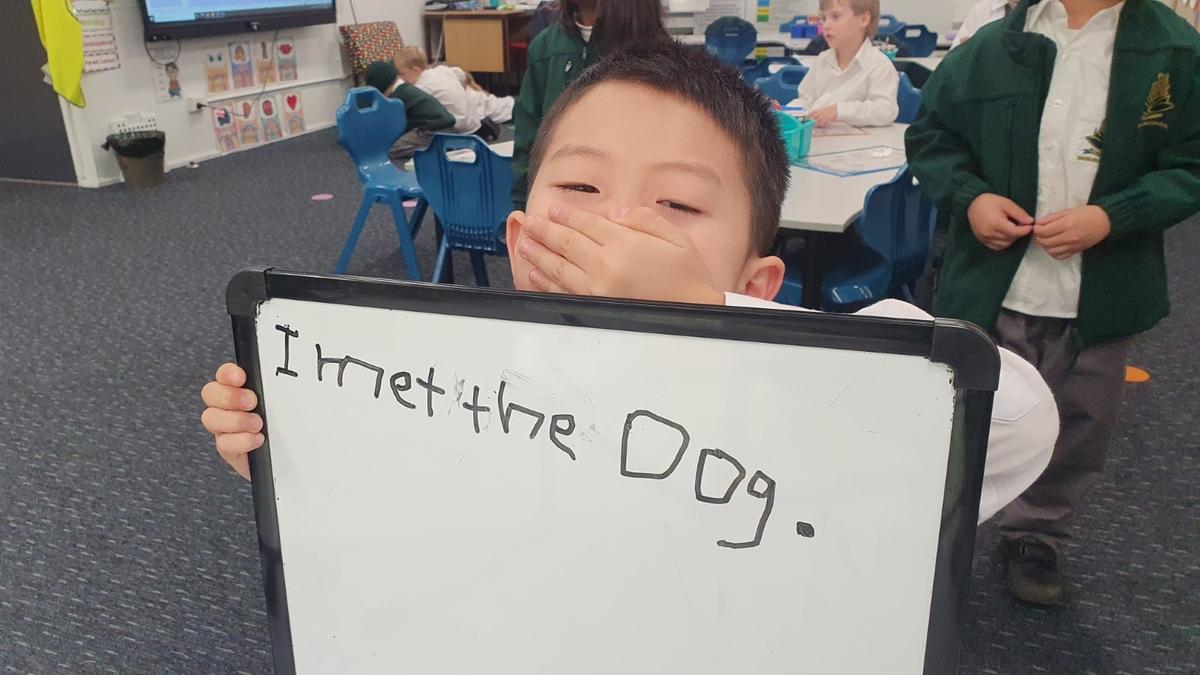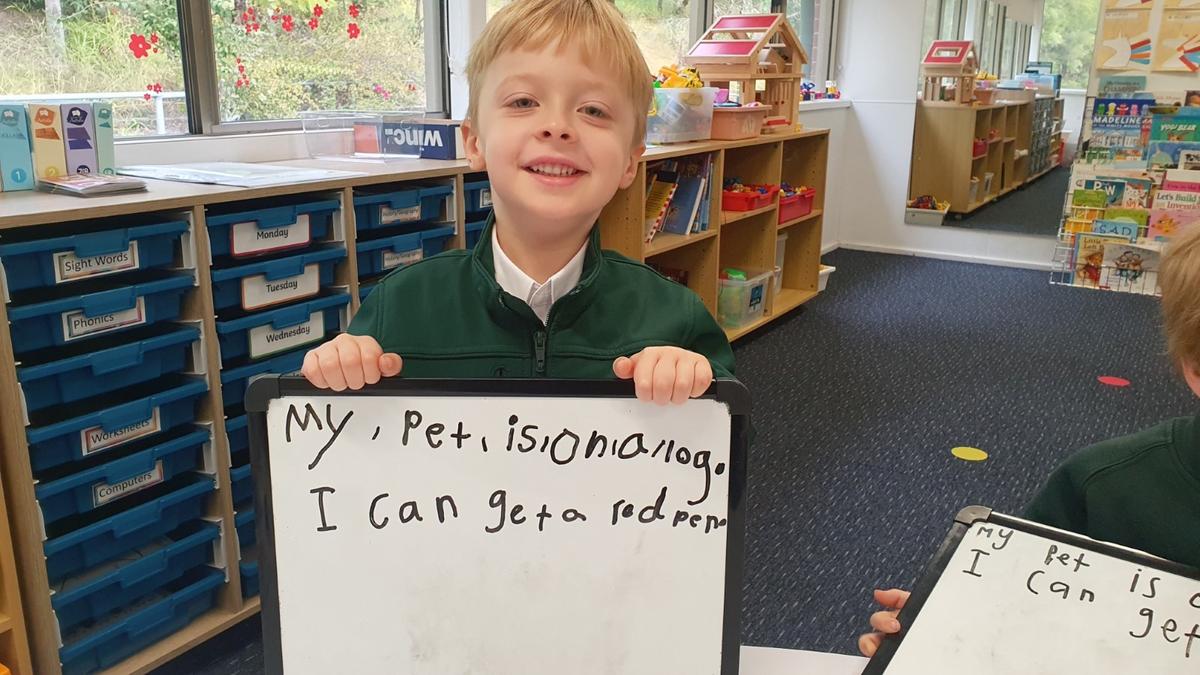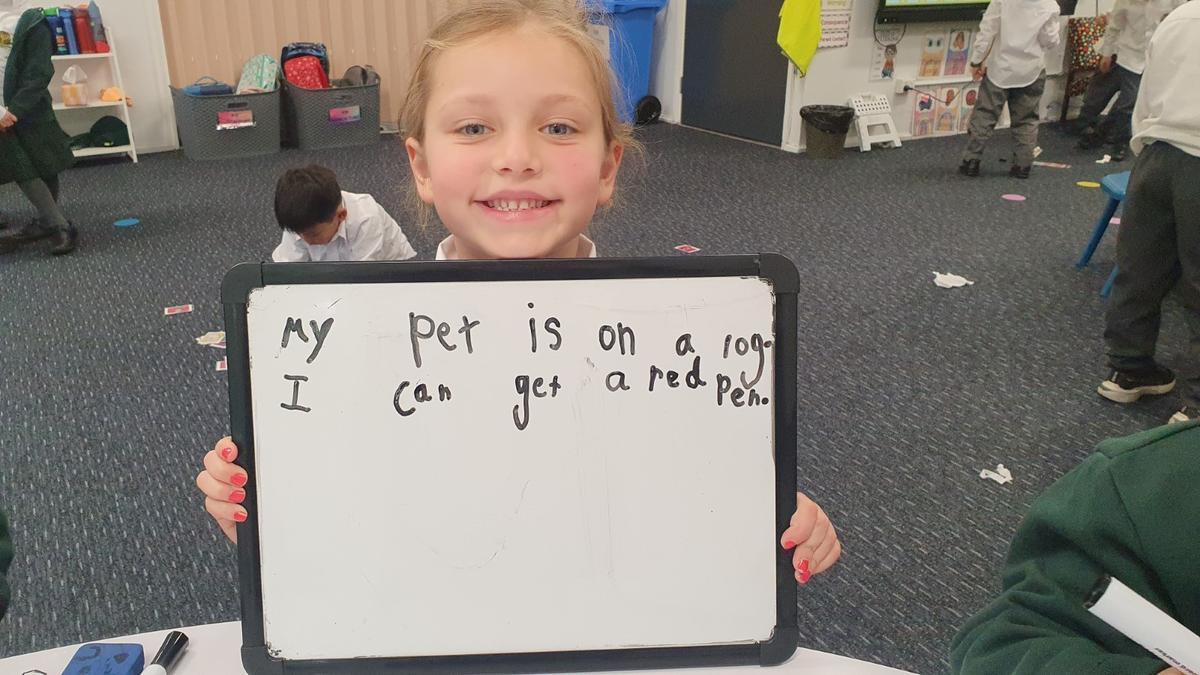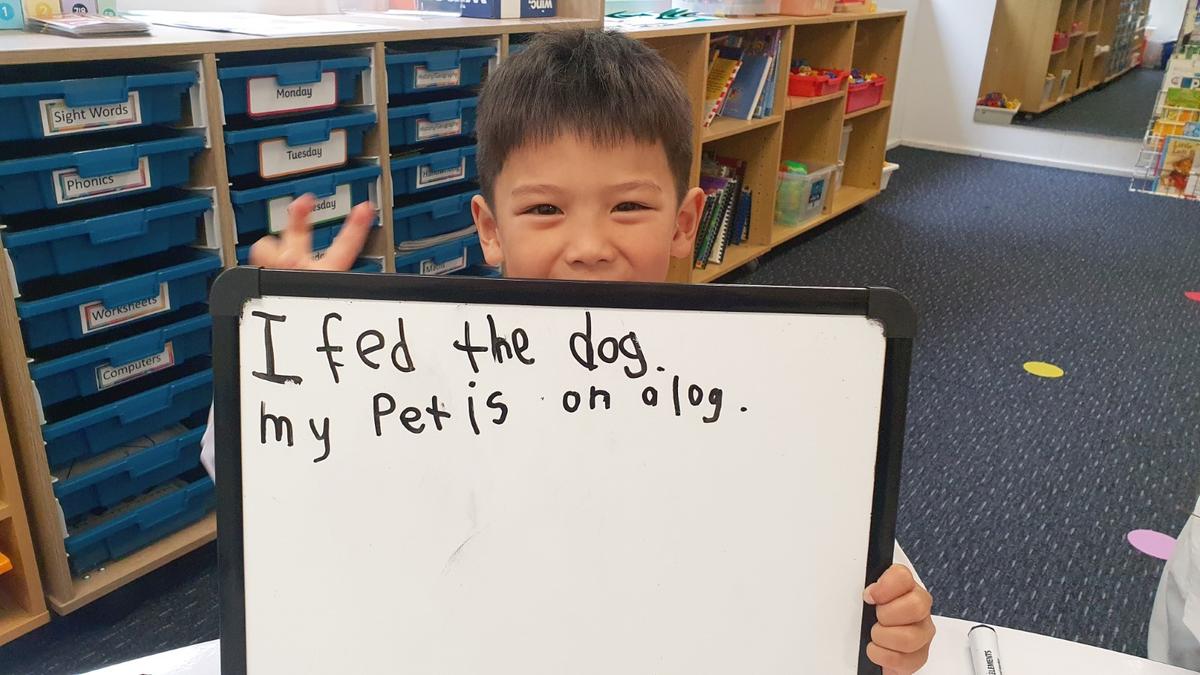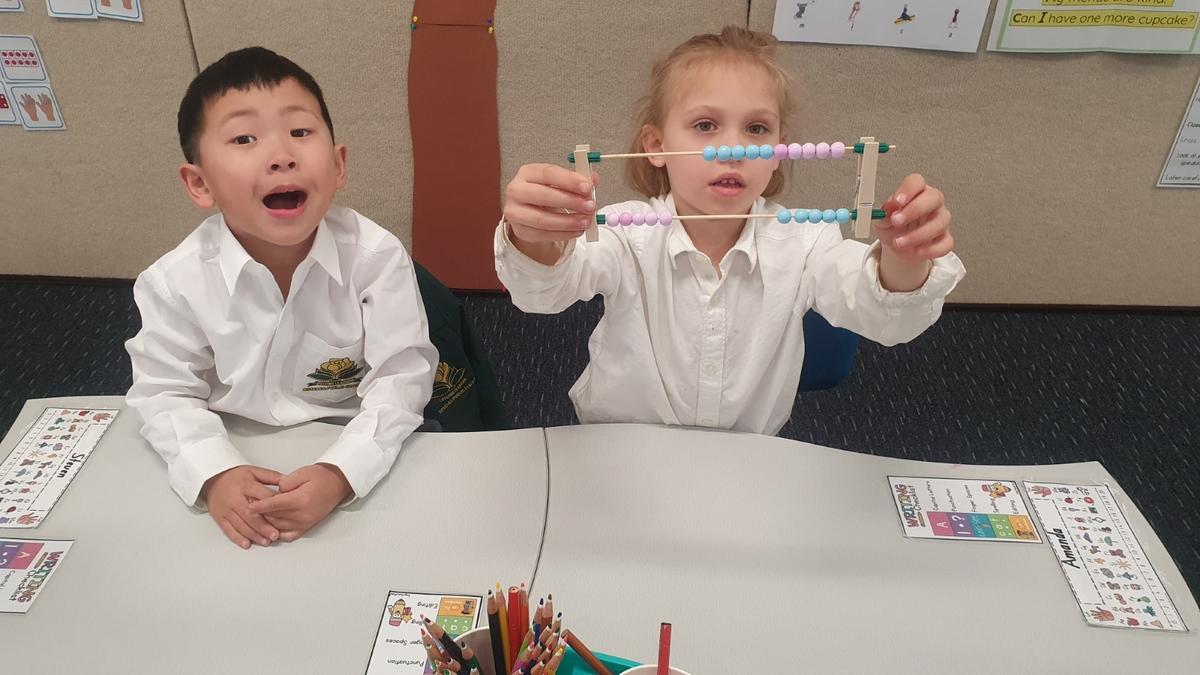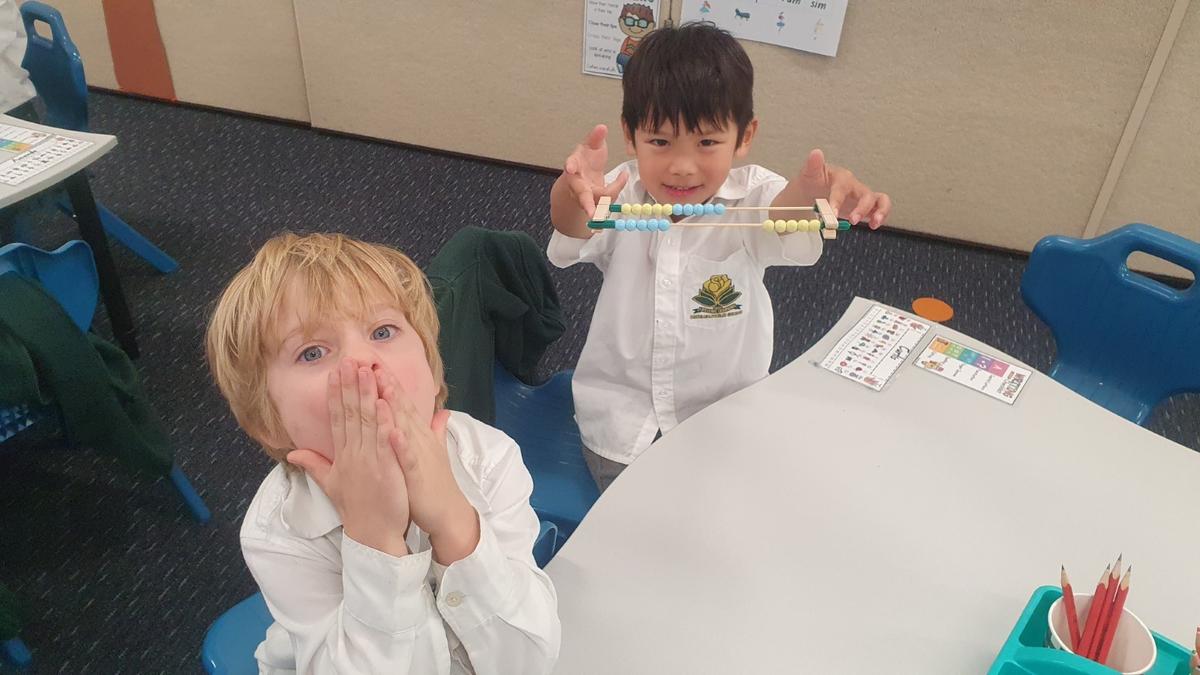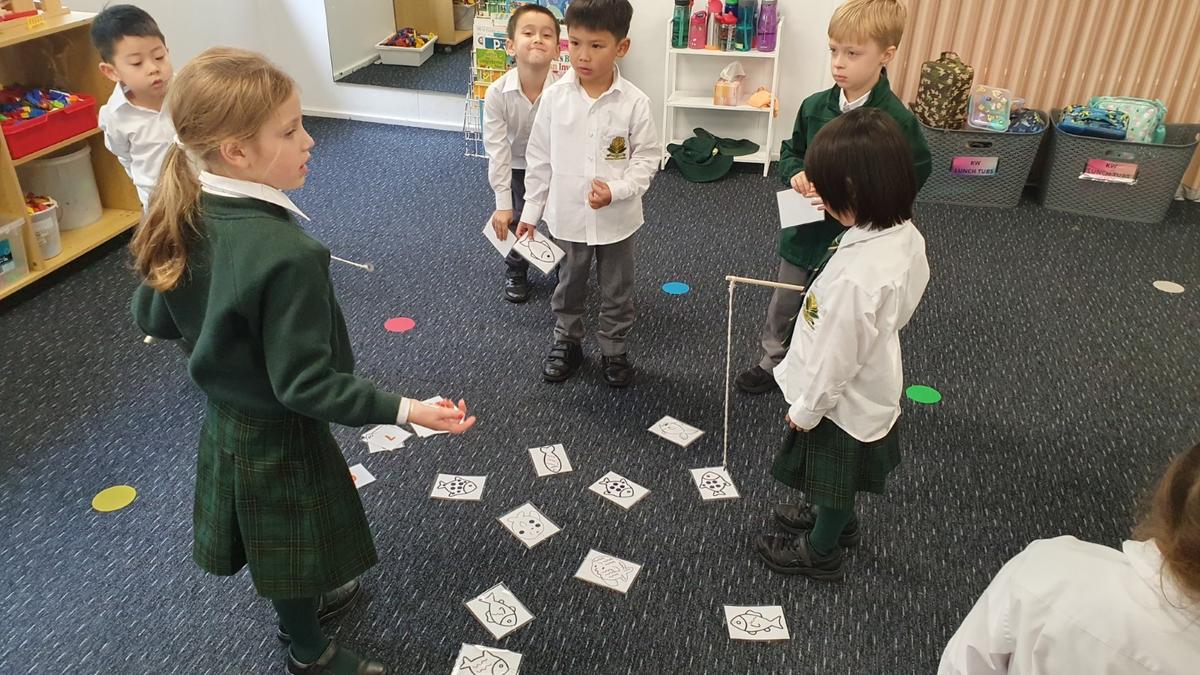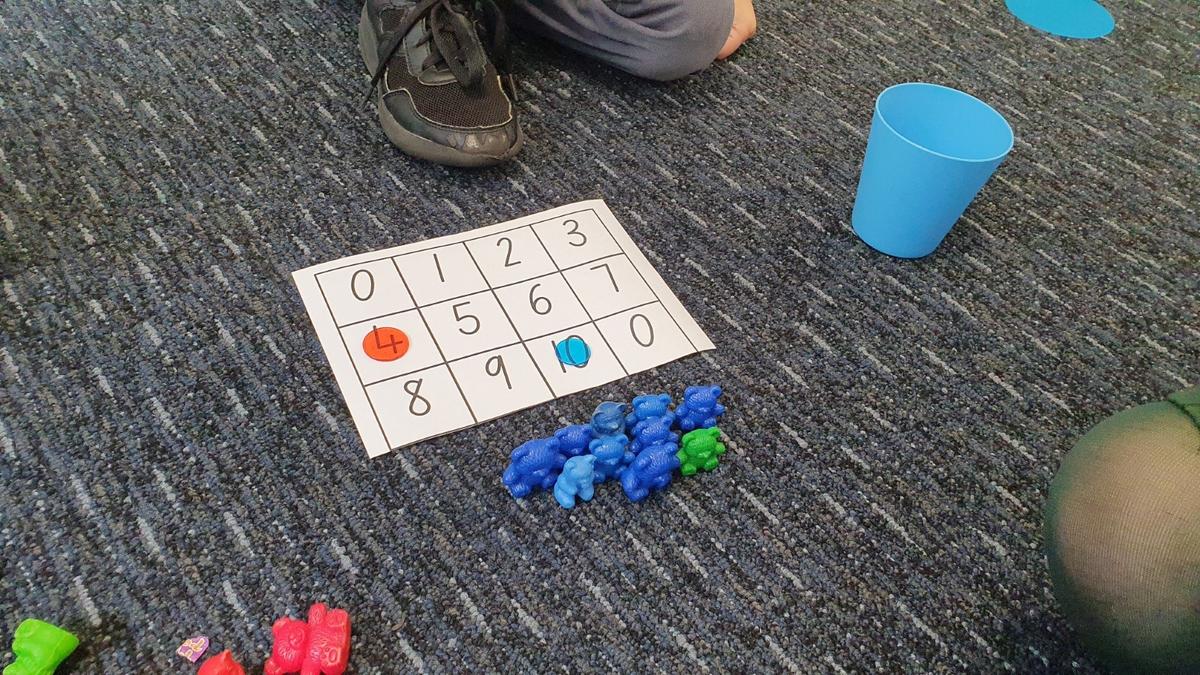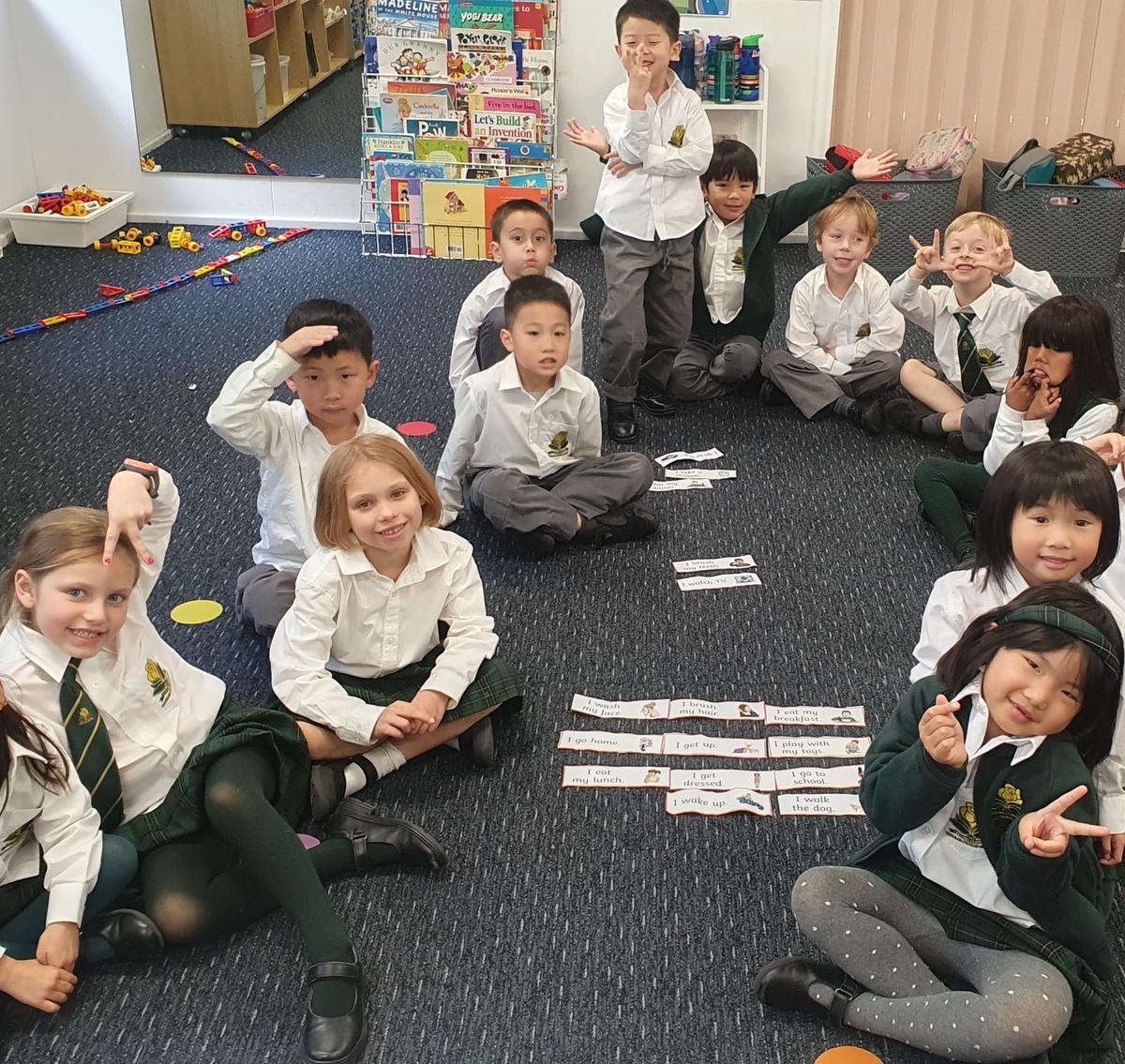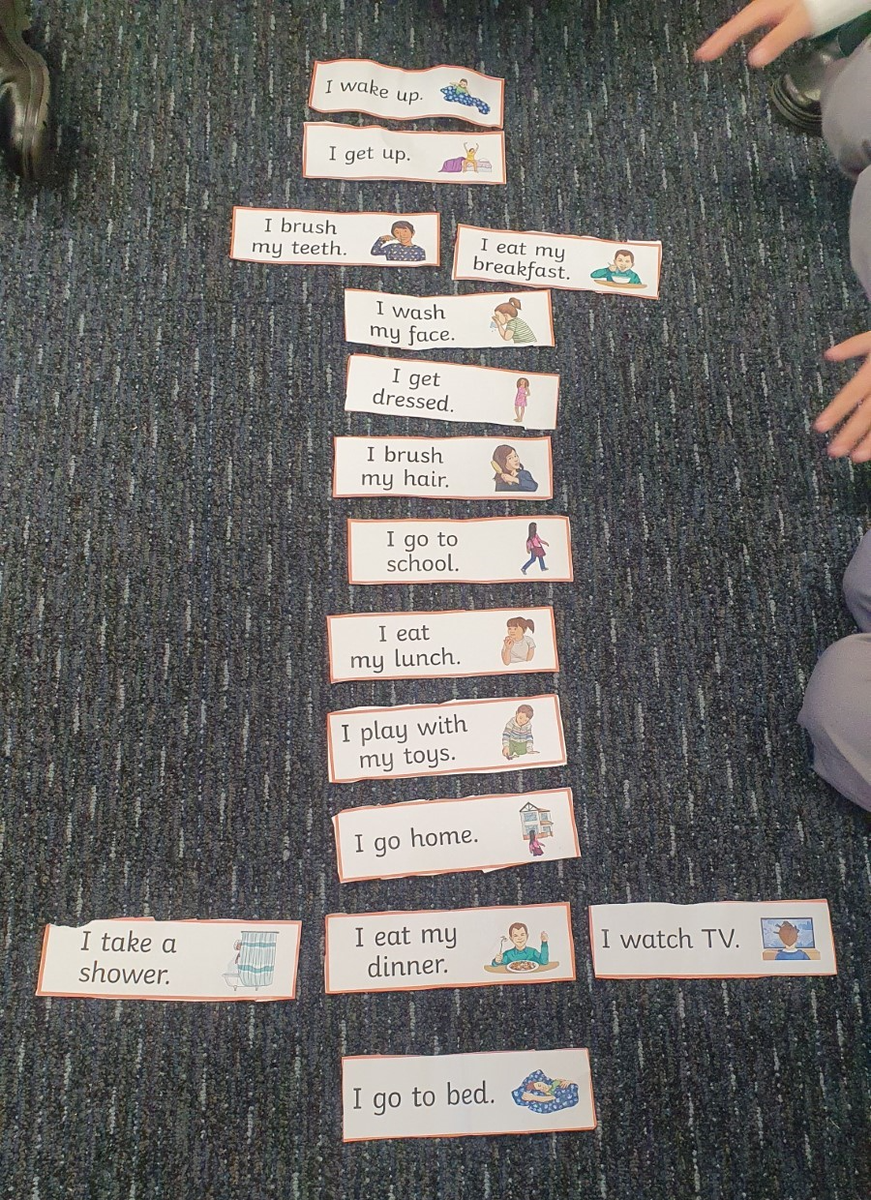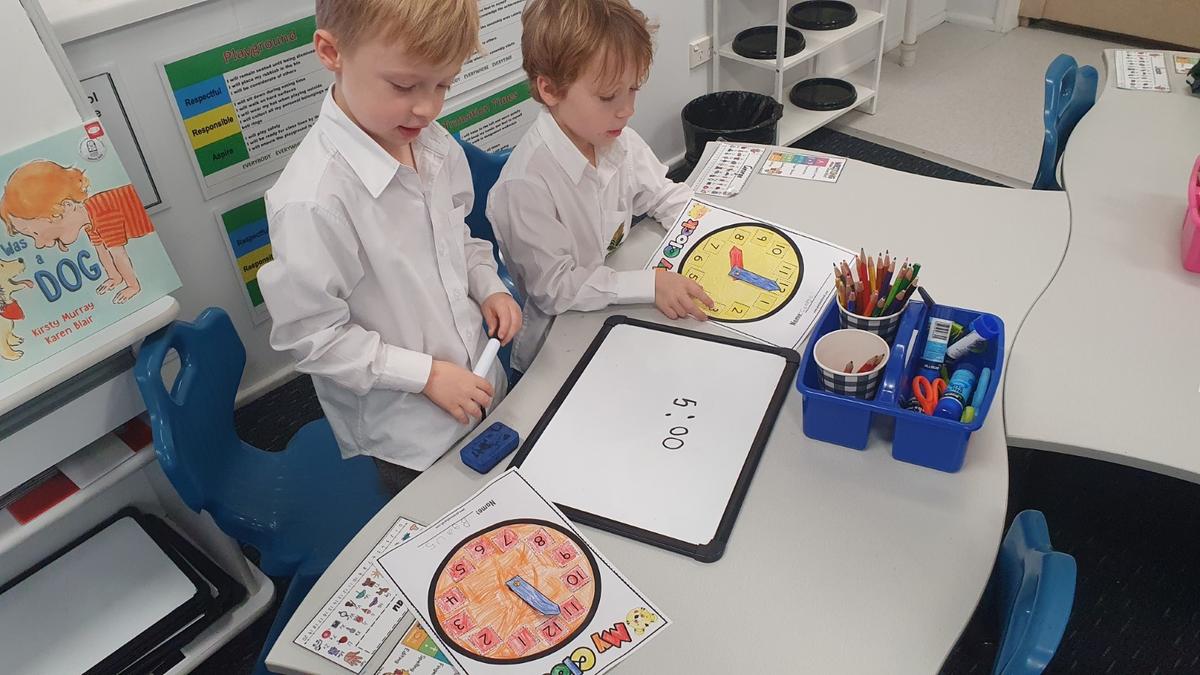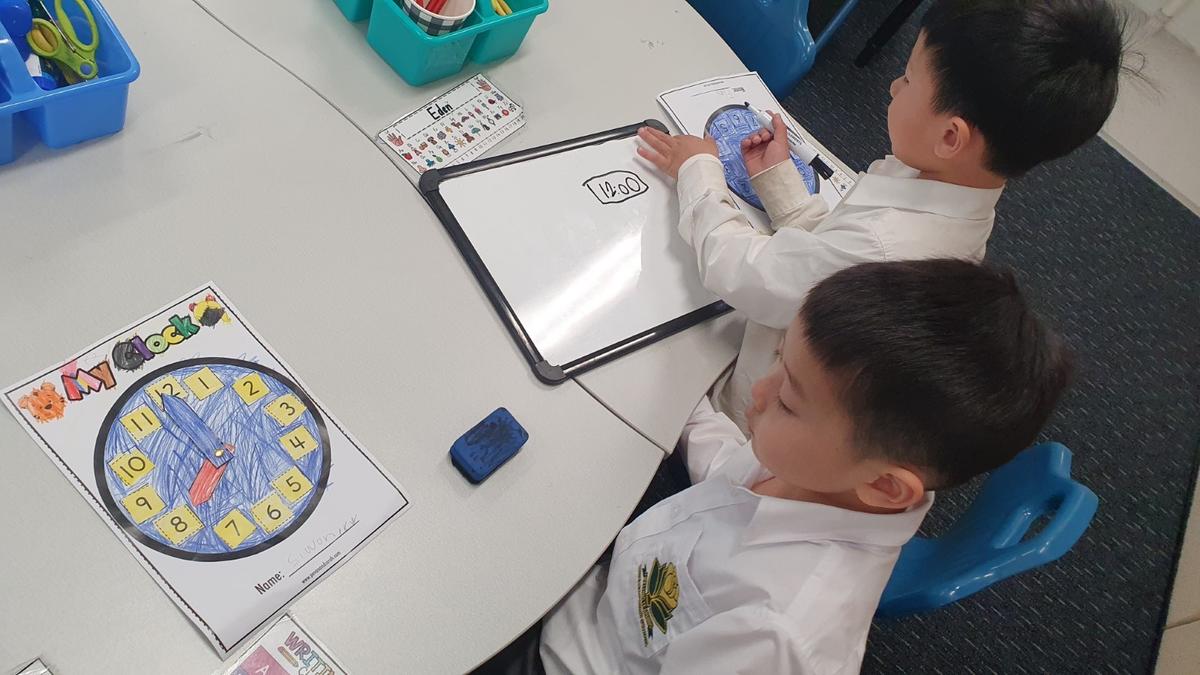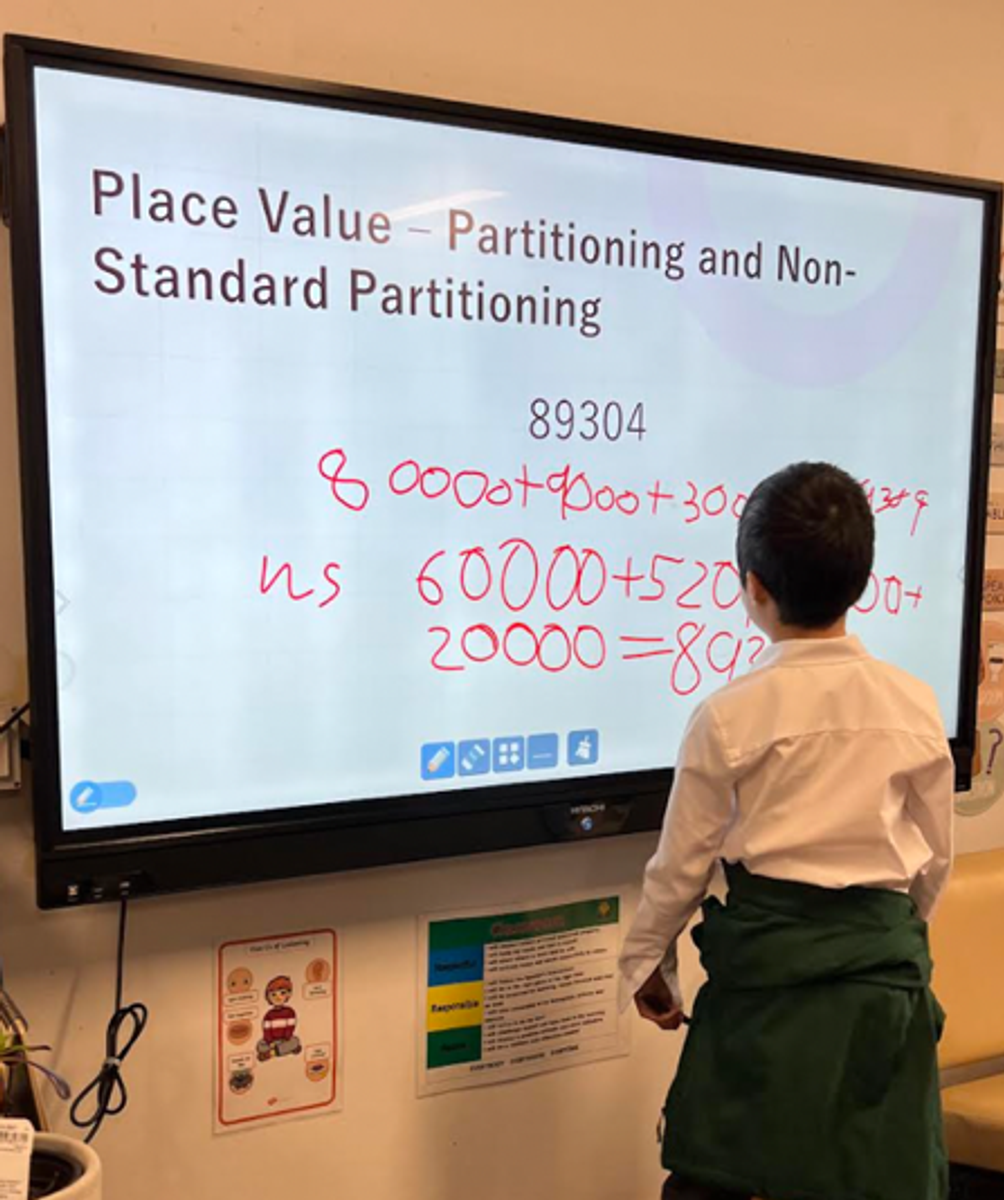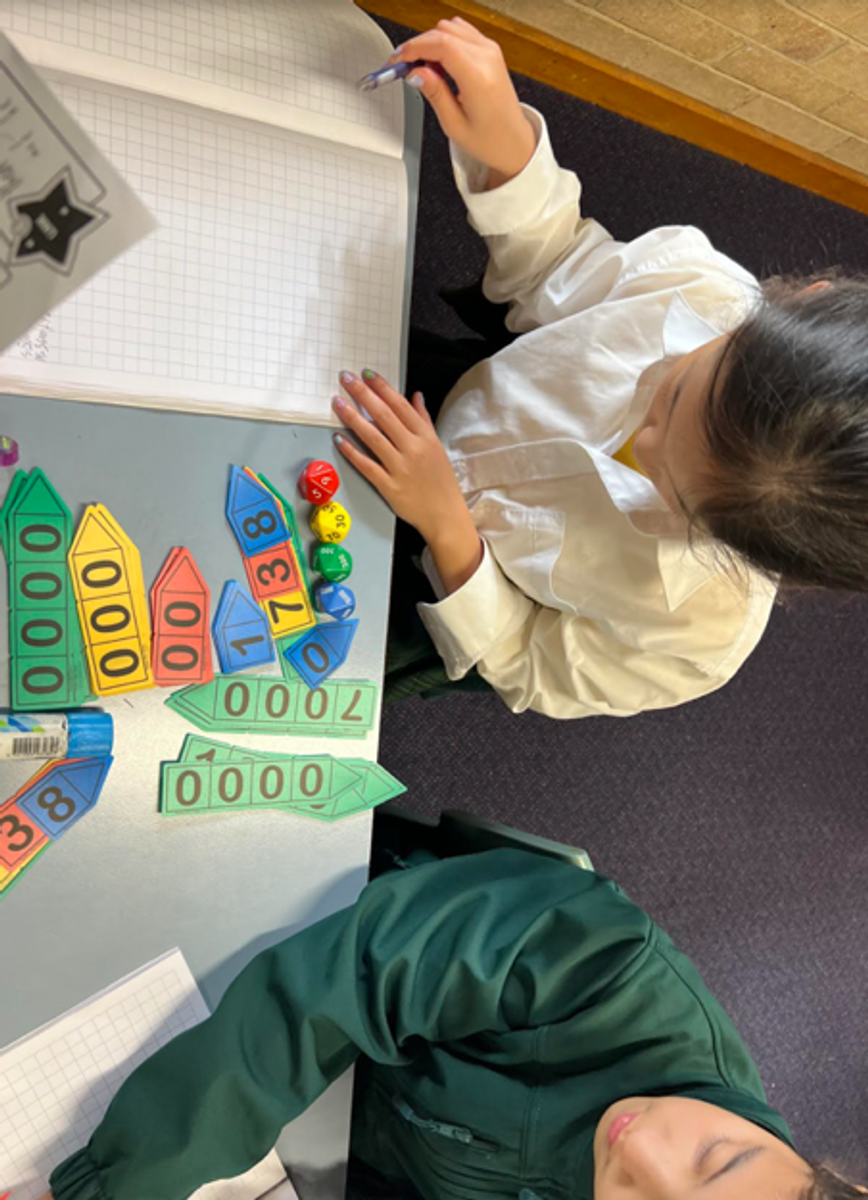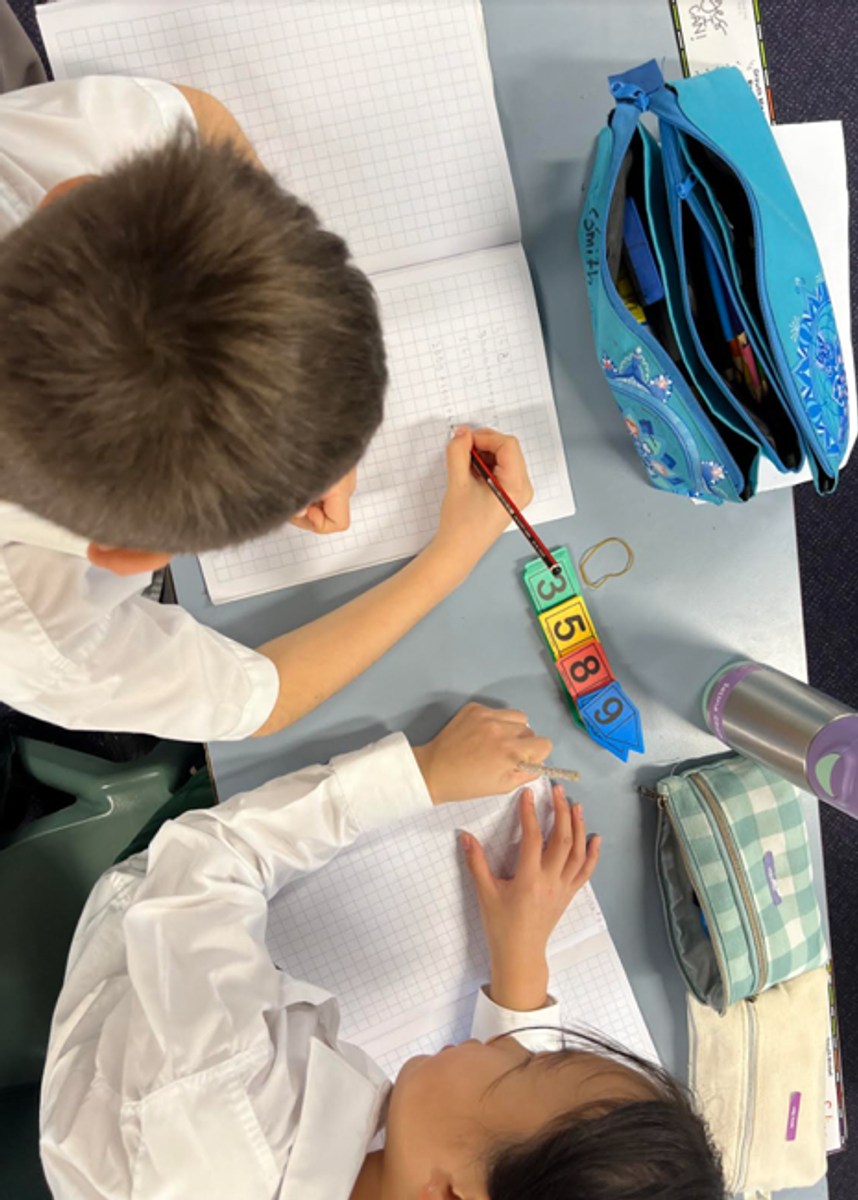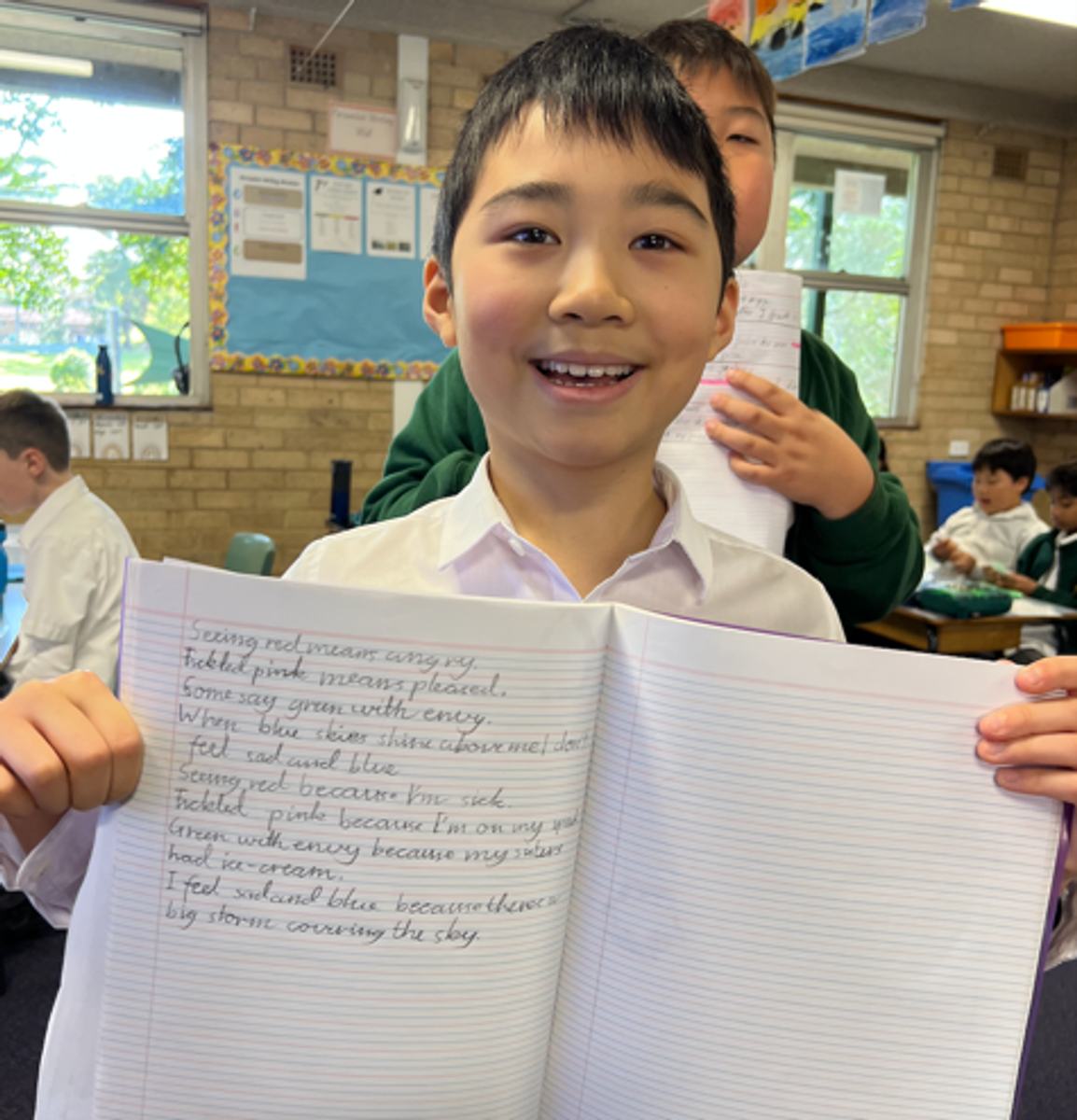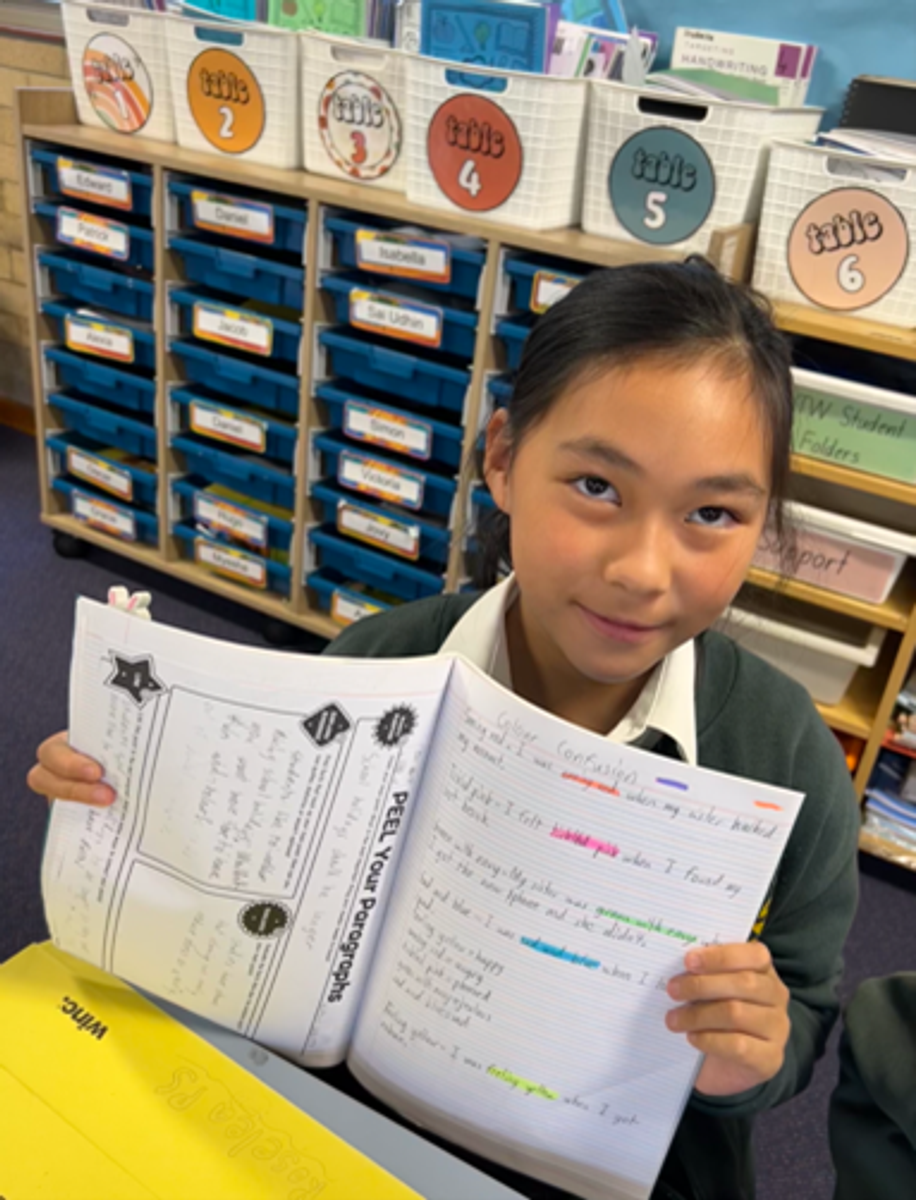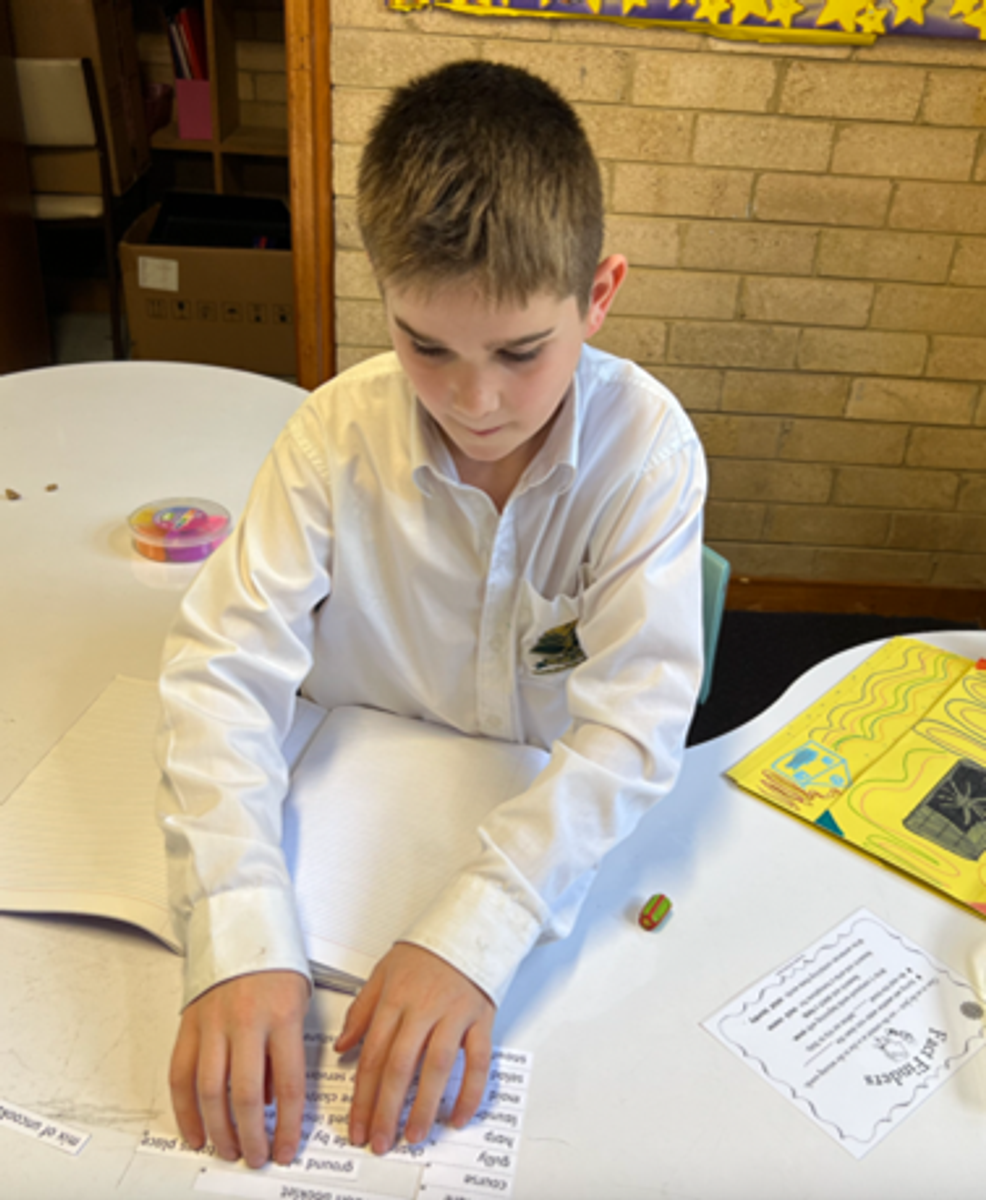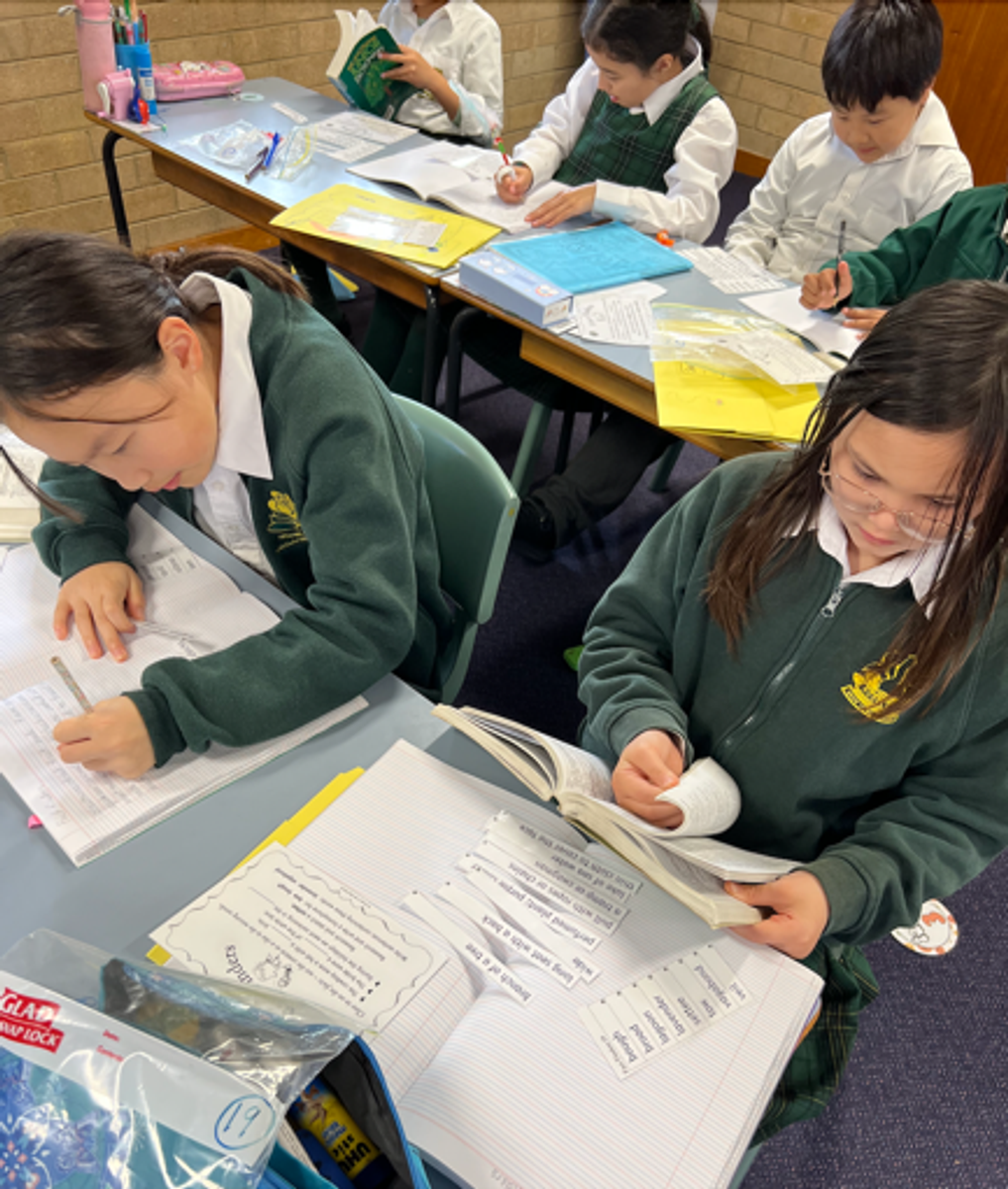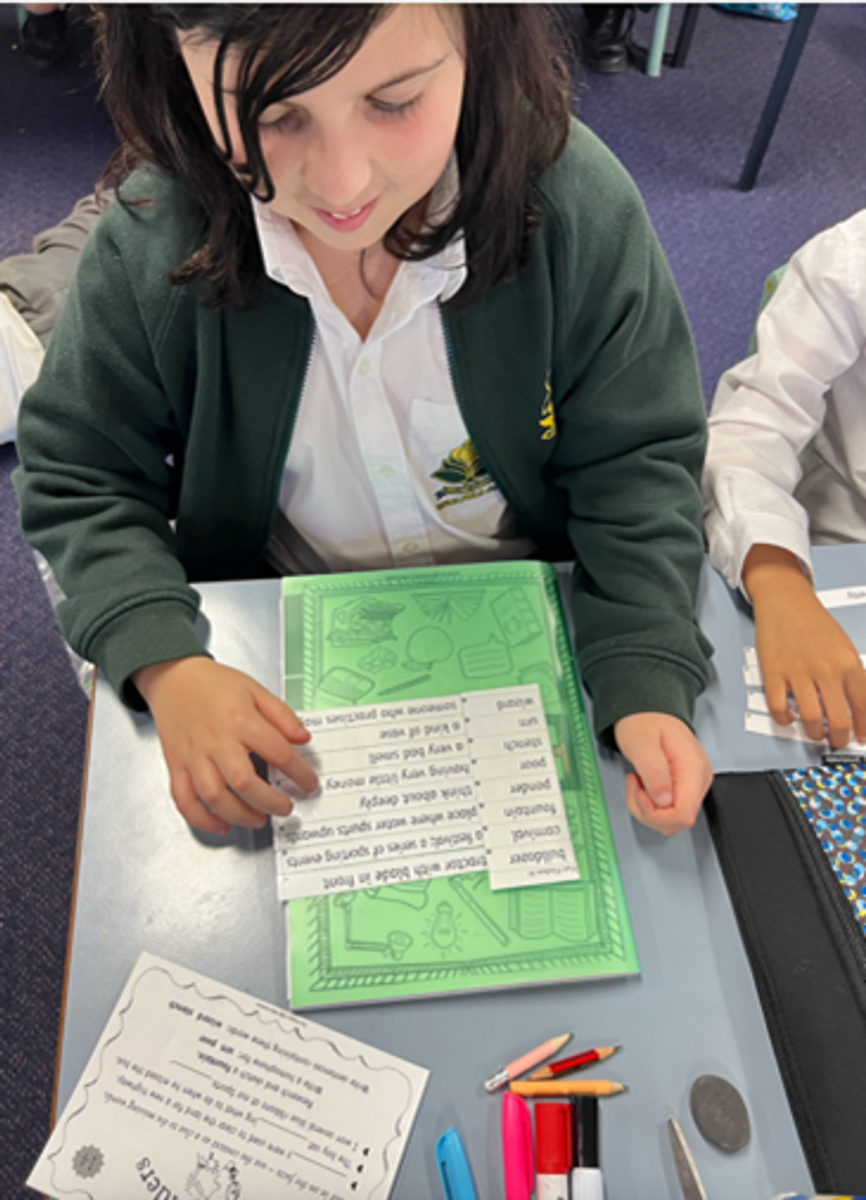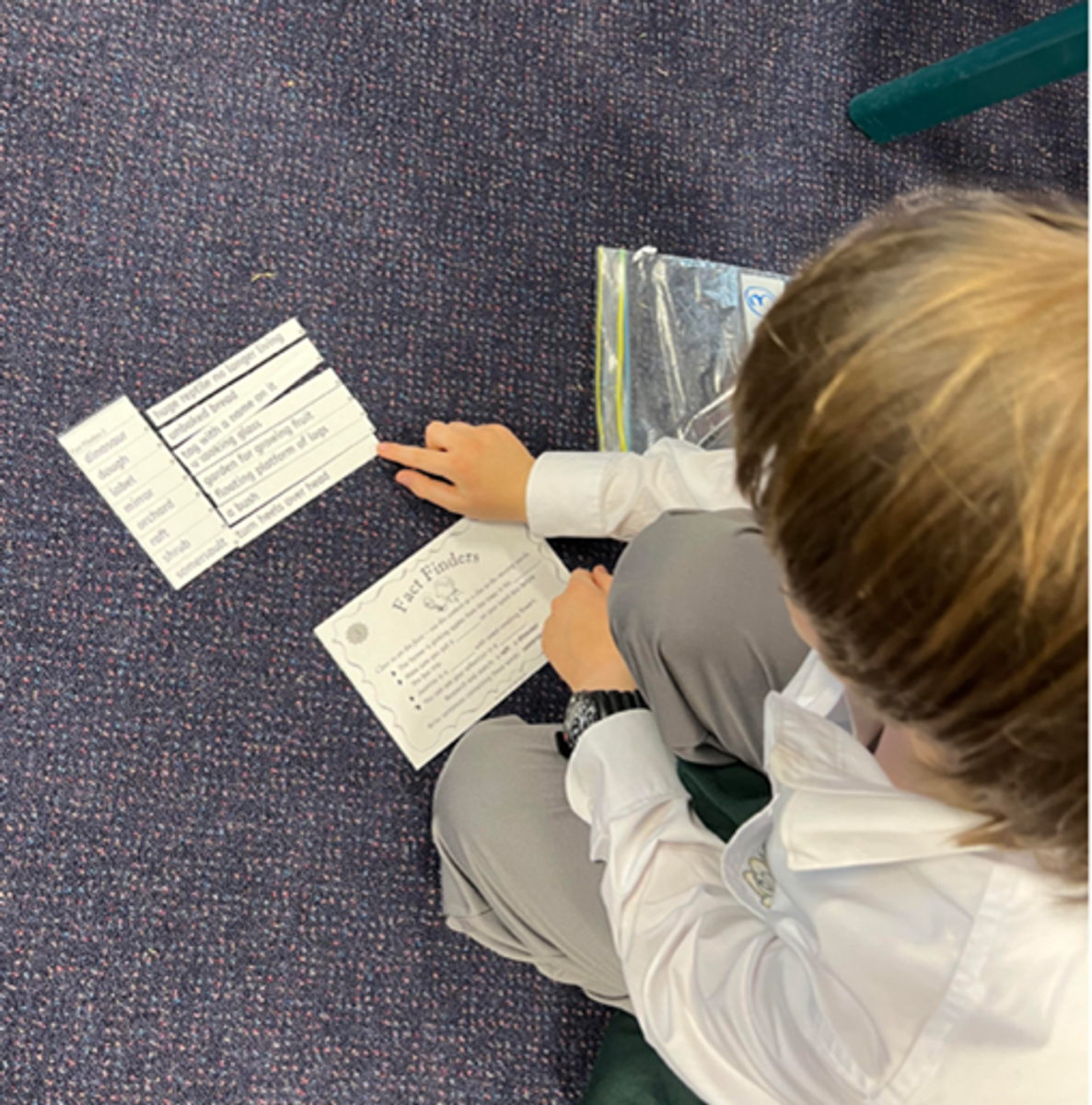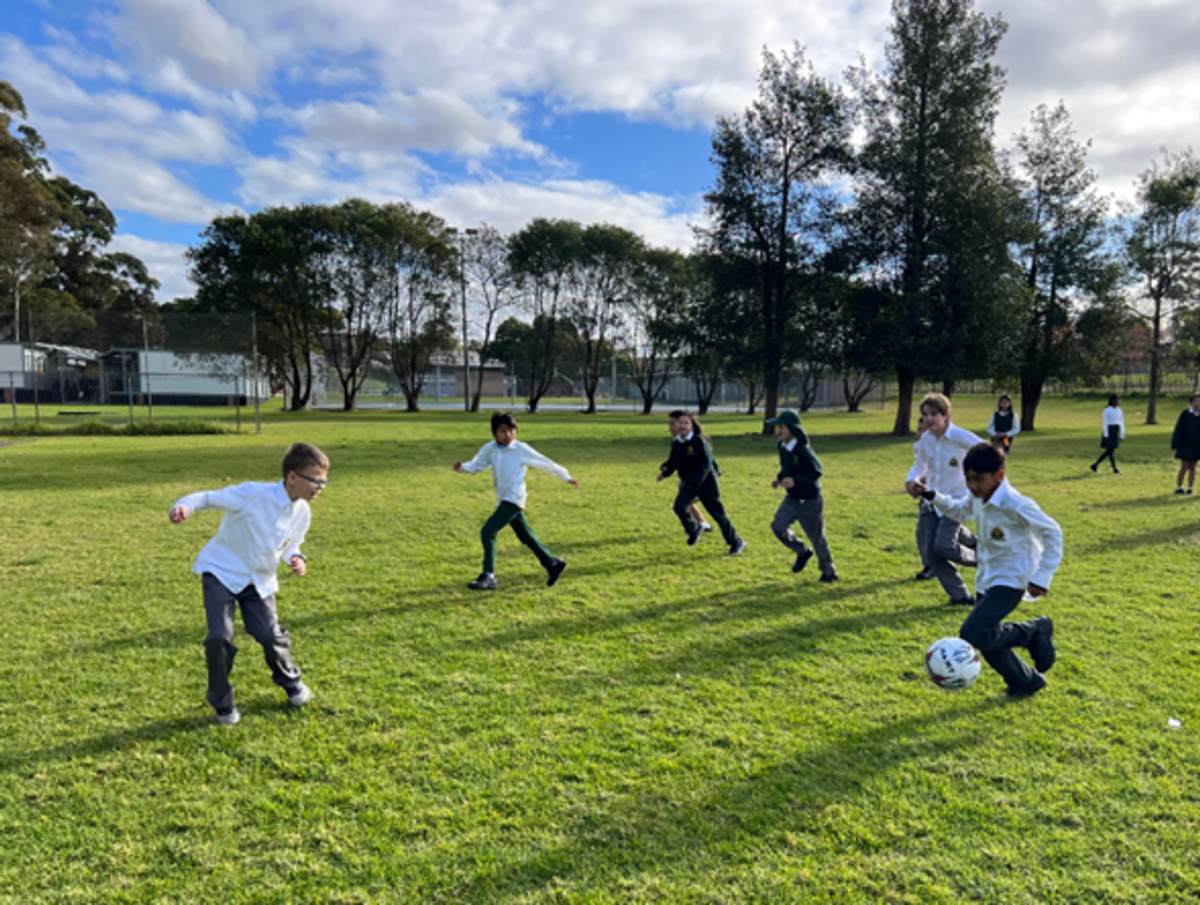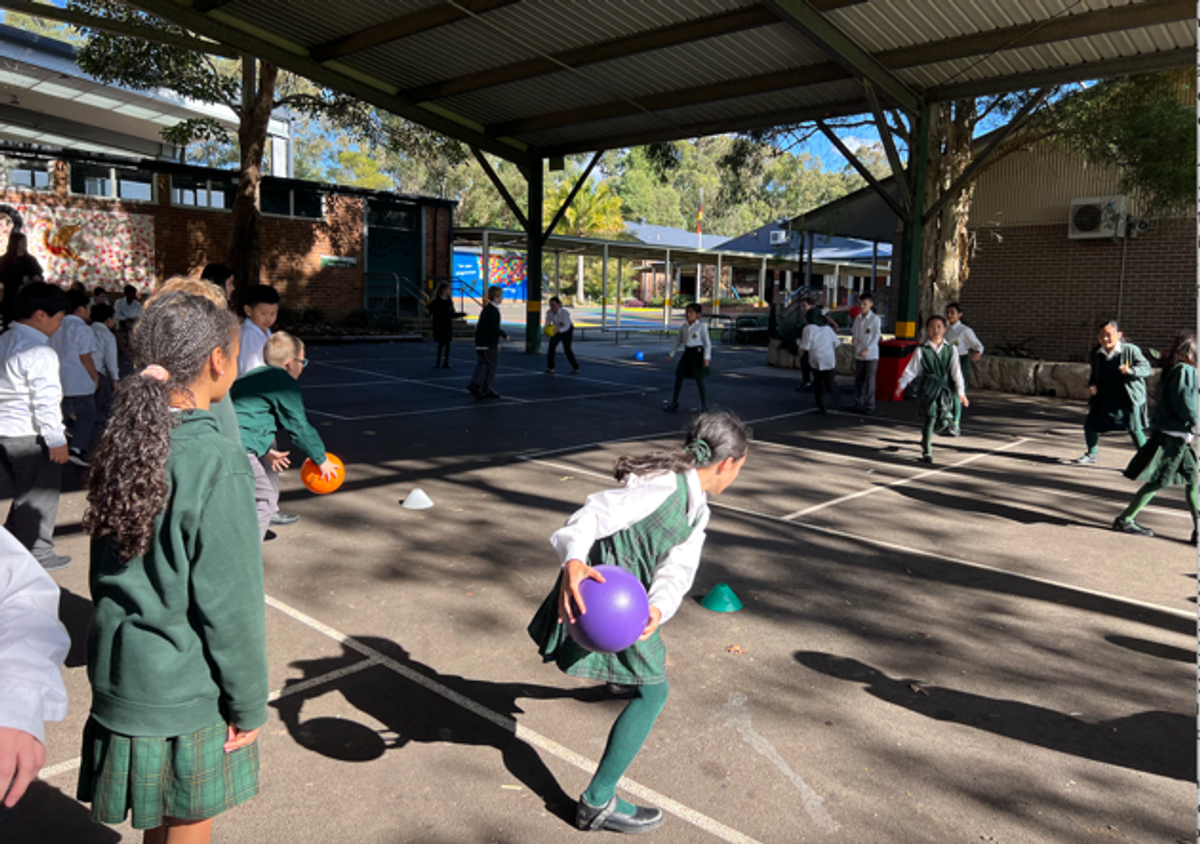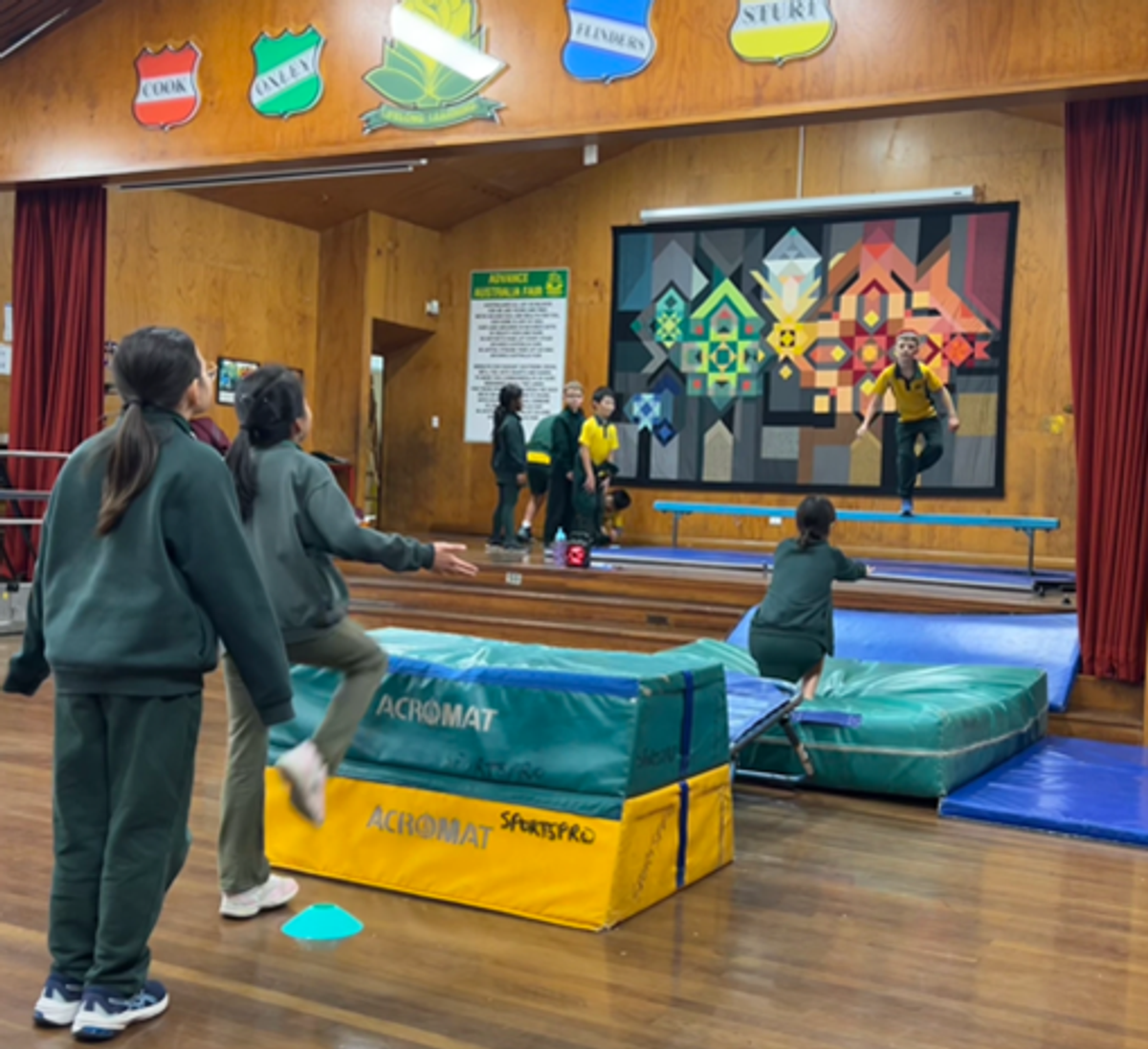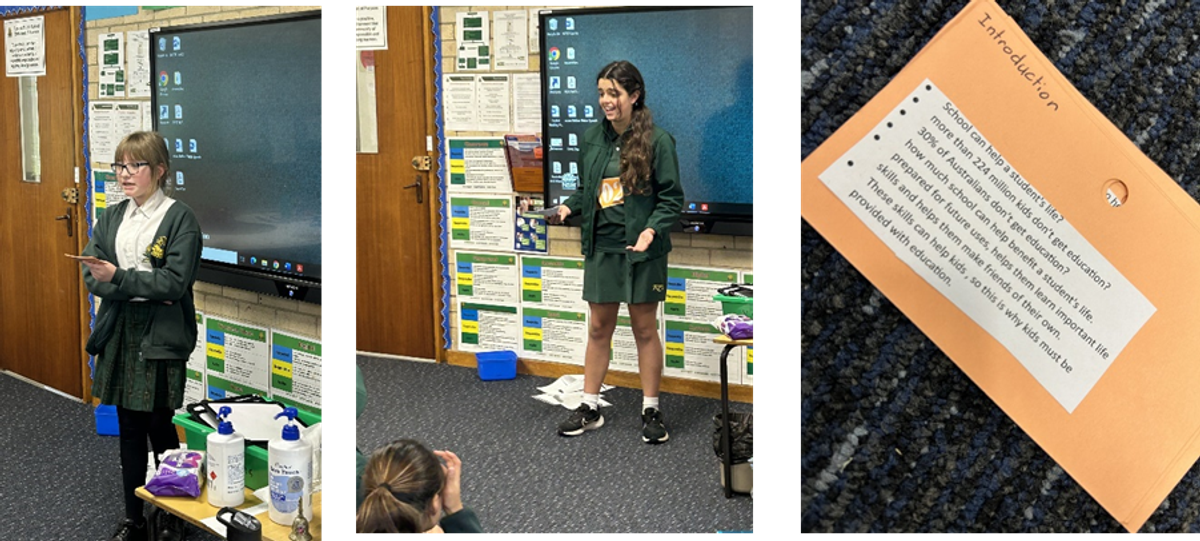Spotlight on Learning
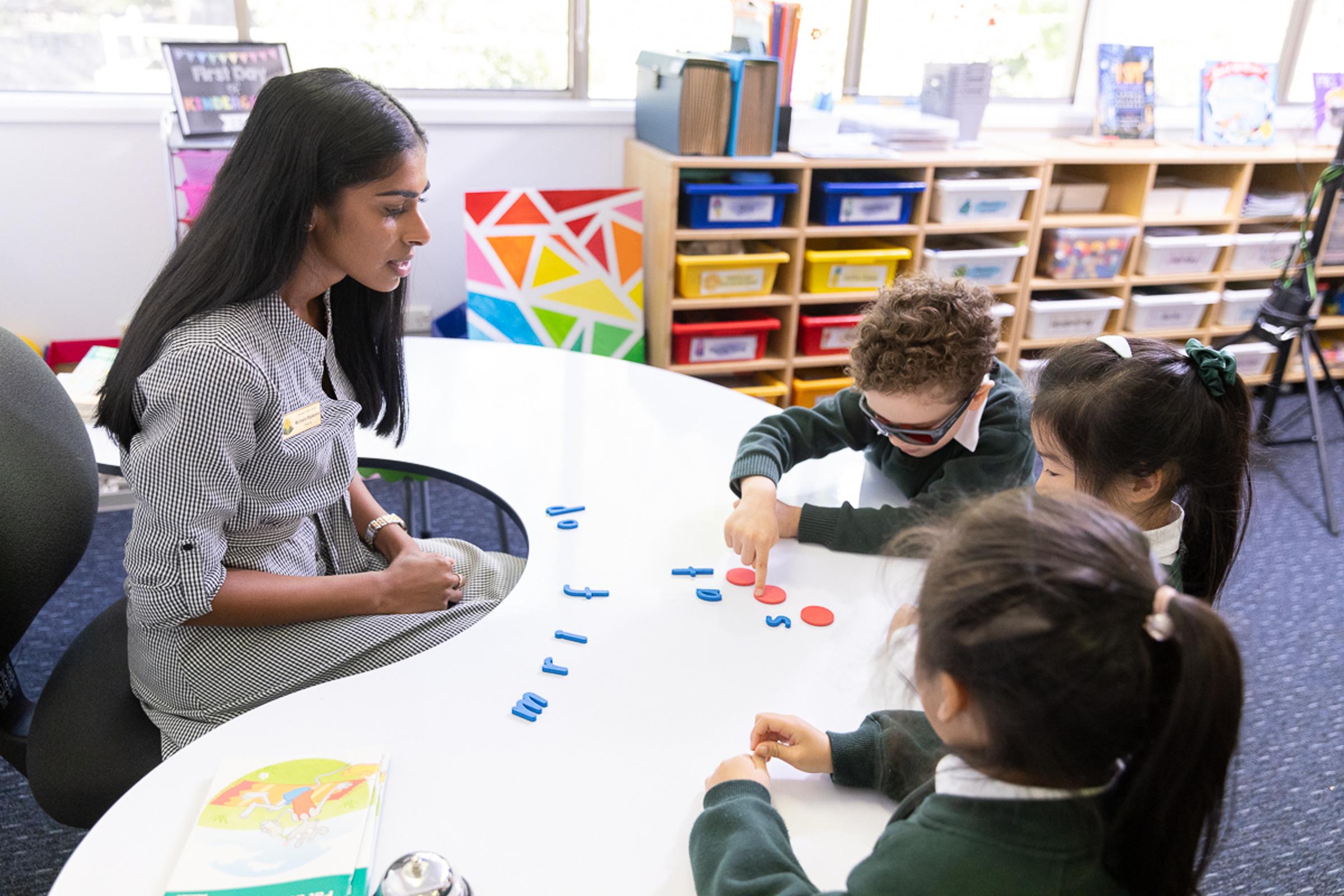
Stage 1
It has been a wonderful term 2 for KW full of fun learning! Students have put their phonics knowledge of letter-sounds and handwriting skills to good use in their independent writing. Mathematics lessons have been filled with hands-on activities and games to build our number sense and understanding of time.
Writing
KW students have been applying their understanding of letter-sounds alongside their handwriting skills to independently write decodable sentences. As sentences are read out to them, they use their sounding-out skills to recognise and spell the words that make up the sentence. They do a fantastic job of making sure to write their sentences with a capital letter, spaces between the words and ending with a full stop. KW have been learning so many tricky words this term and students have been amazing at remembering them and including them in their sentence writing.
Mathematics
KW have been using our rekenreks in warm-ups and games to help visualise what numbers can look like in quantities and help us with our counting and number combinations. They have been a great help when learning about friends of 10 and students have been combining their rekenreks together to make a double-decker rekenrek as we continue to learn about numbers up to 20 and counting on from 10. Alongside our rekenreks, KW have also been playing many fun number games that continue to develop our counting and subitising skills.
KW have also been learning about time and clocks in the past few weeks. We have explored different events that happened throughout the day and have learned to categorise them into events that happened at school or at home, and during the day or at night. KW also did a wonderful job sequencing our events from when we wake up in the morning to when we go to sleep. We made our very own clocks and have been using them to explore analog and digital times. KW students have been learning to read both analog and digital clocks to the hour, recognising the differences between the clocks and their unique features to read ‘o’clock’ times. It has been wonderful to see our students embrace all the new and different kinds of learning we have experienced in the classroom, they should be incredibly proud of themselves.
Mr Widjaja – KW Classroom Teacher
Stage 2
Our 4F maths lessons have focused on place value, including partitioning numbers into standard and non-standard form. Students rolled the place value dice and created the number using the place value cards. They then partitioned the number in standard form and non-standard form on mini-whiteboards.
We also looked at rounding, where we used numbers up to the tens of thousands. Students played ‘round up or round down’ where they needed to draw an arrow up or down to reflect if you would round the number up or down. We practised how rounding can be useful for estimating and helping with addition and subtraction. Students used cards to make a two- and three-digit number and rounded it up or down to the nearest ten or hundred.
In Literacy groups, we have been looking at how information in imaginative writing can sometimes be inferred and not directly stated. We read a poem called “Colour Confusion” which uses idioms and figurative language such as ‘seeing red’ and ‘tickled pink’ to show the emotions of the characters. Authors use figurative language to help the reader visualise what is happening in a story or poem, without it actually being stated. Students discussed what each idiom meant and then wrote their own creative sentence.
This week, we worked with our Fact Finders cards. Students needed to match definitions with the words and then complete sentences using the correct word. This was tricky because sometimes they had to use the context of the sentences or the definition of the word to complete the sentences correctly. It was a challenge but a fun one. Let’s say the students were feeling ‘tickled pink’ when they finally completed their Fact Finder card.
In amongst all the learning inside the classroom this week, Year 4 has also started recording their activities for the Premier’s Sporting Challenge. So far, we have played a game of soccer, a game of Bin Ball and had our weekly gymnastics activity.
Miss Fairgrieve - 4F Classroom Teacher
Stage 3
In writing 6L has recently focussed on preparing a speech as practice for the Public Speaking Competition in early Term 3. Students are planning a persuasive speech on one of three topics:
- All children should have access to clean drinking water.
- All children should have access to childhood immunisations.
- All children should have access to an education.
Students are concentrating on putting everything they have learnt this term about persuasive writing – emotive language, modality, personal pronouns, rhetorical questions, and more – into their speeches.
An introductory paragraph from Zhongbo on the topic of clean water:
How would you feel if you had to walk miles to get water that is not even clean? That is, unfortunately, happening right now in many countries. In Africa alone, 842,000 people die each year due to the lack of clean water. That is completely unacceptable. We must change this because without clean water, you have a higher chance of death, clean water prevents diseases and clean water is not just a luxury, it is a must.
A persuasive paragraph from Carolyn on education:
To continue, allowing kids to go to school also helps them improve their skills. This includes reading and writing, calculating and experimenting and much more. These skills can help them in the future. For example, subjects like math and English can benefit you in the future by giving you the capability to read letters from people and math for when you're going shopping. This also helps students to be better when they make decisions. All of these important subjects can help kids learn and progress their skills and help students get better grades, it also helps them develop the talent inside themselves. This is why kids should be able to have the opportunity to go to school to learn these lifelong important skills.
A persuasive paragraph from Chloe on the topic of immunisations:
In 2020, an investigation was held, and it was found that 5 million children under the age of 5 die every year from preventable diseases. About 80% of those children are from Sub-Saharan Africa and Central and Southern Asia, both of which are poor areas. Imagine all those children dying because of the lack of attention this matter is receiving. Preventable diseases are currently the number 2 cause of child death worldwide, and ignoring the severity of the situation will only make things worse. However, because of immunisations, we are currently preventing 3.5-5 million deaths every year worldwide, including deaths from diphtheria, tetanus, pertussis, influenza and measles. With that in mind, providing immunisations to children around the world will save millions more lives. This will be a good change to the world, and it’s a change that we need.
Students then converted their speeches to dot points to put on palm cards. This enabled them to use the dot points as prompts, but also spend as much of their speech as possible making eye contact with their audience.
Mr Love - 6L Classroom Teacher
